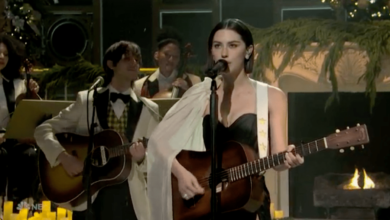Review: ‘Tripliciti’ Is a Brilliant Debut from a Fingerstyle Super-Trio

I’ll be the first to admit that I went into this acoustic fingerstyle supergroup’s debut album a wee bit skeptical. Sure, all three guitarists—Andy McKee, Trevor Gordon Hall, and Calum Graham—are superb virtuosos with large followings. McKee in particular is an unparalleled streaming and YouTube sensation—60 million views of “Drifting” and counting! But great guitarists don’t always play well together. Would they be deferential to one another? Would it devolve into a too-many-notes, look-at-me cutting contest? A gimmicky tapping fest? I’m very happy to report that the answer to those questions is yes, no, and no.
It’s an interesting concept: Nine of the 11 tunes on Tripliciti were derived from solo guitar pieces that appeared on albums by each of the three, artfully rearranged by the group to become sophisticated trio pieces. Another was a solo piece written by Hall for this album and arranged by the trio. And the final track, “Ursa Major,” was penned by the late Michael Hedges, who was one the most influential acoustic guitarists of the 1980s and ’90s.

McKee has four songs (three of them from his excellent 2010 album, Joyland) and Hall and Graham have three each. I made a point of listening to the solo originals of all of them, and I must say, the way the trio has transformed them is quite astonishing and masterfully done. The basic character of the tunes has not changed, but the embellishments—most fairly subtle and all quite tasteful—add a remarkable depth and richness. Little melodic lines and figures dance together and intertwine like garden vines in the bright, clean, spacious mix by Corin Nelsen, never colliding or overpowering each other. These players checked their egos at the door!
The composer of the tune appears in the center of the stereo spread throughout, but the arrangements don’t generally favor one player over the others. Everyone seems to be equally important, and the ornamentation—whether it’s harmonics or silvery filigrees or bass-like low-end touches—feels organically integrated into what essentially is a modern folk album. Melody reigns supreme here and there’s nary a discordant voicing to be heard. Several of the tunes have a marvelously dreamy quality, but there are also pieces that have some real drive and momentum, like Graham’s “In Lak Ech,” which finds McKee on electric guitar, and McKee’s “Hunter’s Moon,” which is propelled by his percussive tapping on the body set against sustained cries from Graham’s haunting eBow (among other textural elements).
Not surprisingly, a bunch of cool guitars appear on the album: McKee played a Mike Greenfield custom steel-string, a Greenfield baritone acoustic, and an Ernie Ball Music Man electric; Graham’s arsenal included a custom Mario Beauregard baritone (occasionally augmented with an eBow) and a Furch nylon-string; and Hall used a custom Sheldon Schwartz steel-string, another Schwartz with a kalimba (African thumb piano) attachment, and a Mike Haney custom high-strung 12th-fret 00 steel-string. These are some glorious-sounding instruments.
There’s so much thoughtful and imaginative fretwork on this tremendously collaborative album that it’s worth devoting your full attention—and maybe a pair of headphones—to it. Lastly, I would strongly recommend checking out YouTube videos of songs from the album, to really help you appreciate who does what, the sophistication of the arrangements, and the sheer beauty of this release.



